When you walk into a doctor’s office, emergency room, or hospital, the most important thing you can bring isn’t your insurance card or ID-it’s your medical history. Not just what you remember, not just what you think matters. The full list. Every pill, every supplement, every over-the-counter drug, even the herbal teas you drink daily. Missing one thing can lead to a dangerous drug interaction, a hospital stay, or worse.
Medication errors are one of the leading causes of preventable harm in healthcare. In the U.S., they contribute to 7,000-9,000 deaths every year. A big part of that? Incomplete or inaccurate medication lists. Even in 2025, nearly one in five patients gets a medication error during a hospital admission because their doctor didn’t know they were taking something-like a daily fish oil pill, a sleep aid, or a muscle relaxant from last year’s injury.
Why Your Medication List Isn’t Enough
Most people think they’re good at tracking their meds. They’ve got a notebook, a phone note, or a mental list. But here’s the truth: memory fails. Stress clouds judgment. And when you’re in pain or scared, you forget things you’d normally remember.
Studies show that patients forget or misreport about 67% of over-the-counter medications and 20% of prescription drugs during medical visits. That’s not carelessness-it’s human. Especially if you’re on five or more medications. People in that group have an 88% higher chance of having a medication discrepancy that could hurt them.
Doctors rely on electronic records, pharmacy databases, and health exchanges to fill in the gaps. But those systems aren’t perfect. They miss cash-pay prescriptions. They don’t track supplements. And they often don’t talk to each other. One study found that even with the best tech, only 52% of actual medication errors are caught by electronic systems alone.
The Brown Bag Method: A Simple Fix That Works
The most reliable way to make sure your doctor sees the full picture? Bring your meds in a brown bag.
Yes, literally. Grab a paper bag. Put in every pill bottle, every capsule, every patch, every liquid. Include vitamins, herbal remedies, painkillers from the pharmacy, even the CBD oil you take for sleep. Don’t sort them. Don’t throw out empty bottles. Just bring it all.
This isn’t a gimmick. It’s a proven method. When patients use the brown bag approach, medication discrepancies drop by 40% compared to just telling their doctor what they take. Why? Because it removes guesswork. Your doctor sees the exact brand, dosage, and expiration date. They spot duplicates. They notice you’re taking two different versions of the same drug. They catch that you’re on a blood thinner but also taking garlic supplements-which can thin your blood even more.
And it’s not just for hospital visits. Do this at every doctor’s appointment, even your annual checkup. If you’ve started or stopped anything since your last visit, your doctor needs to know.
What You’re Probably Forgetting (And Why It Matters)
Most people think their meds are just prescriptions. But here’s what’s often missing:
- Over-the-counter drugs: Ibuprofen, antacids, cold medicine, sleep aids. These aren’t harmless. Mixing them with blood pressure meds or antidepressants can cause serious problems.
- Herbal supplements: St. John’s Wort can cancel out birth control. Garlic and ginkgo can interfere with blood thinners. Turmeric can affect blood sugar.
- Vitamins and minerals: High-dose vitamin K can weaken warfarin. Calcium supplements can block absorption of thyroid meds.
- Topical treatments: Pain creams with NSAIDs, steroid creams, even medicated shampoos. These get absorbed into your system too.
- Alcohol and recreational substances: Even occasional drinking can interact dangerously with painkillers, antidepressants, or antibiotics.
Doctors don’t ask about these because they assume you won’t mention them. But if you don’t tell them, they can’t protect you.
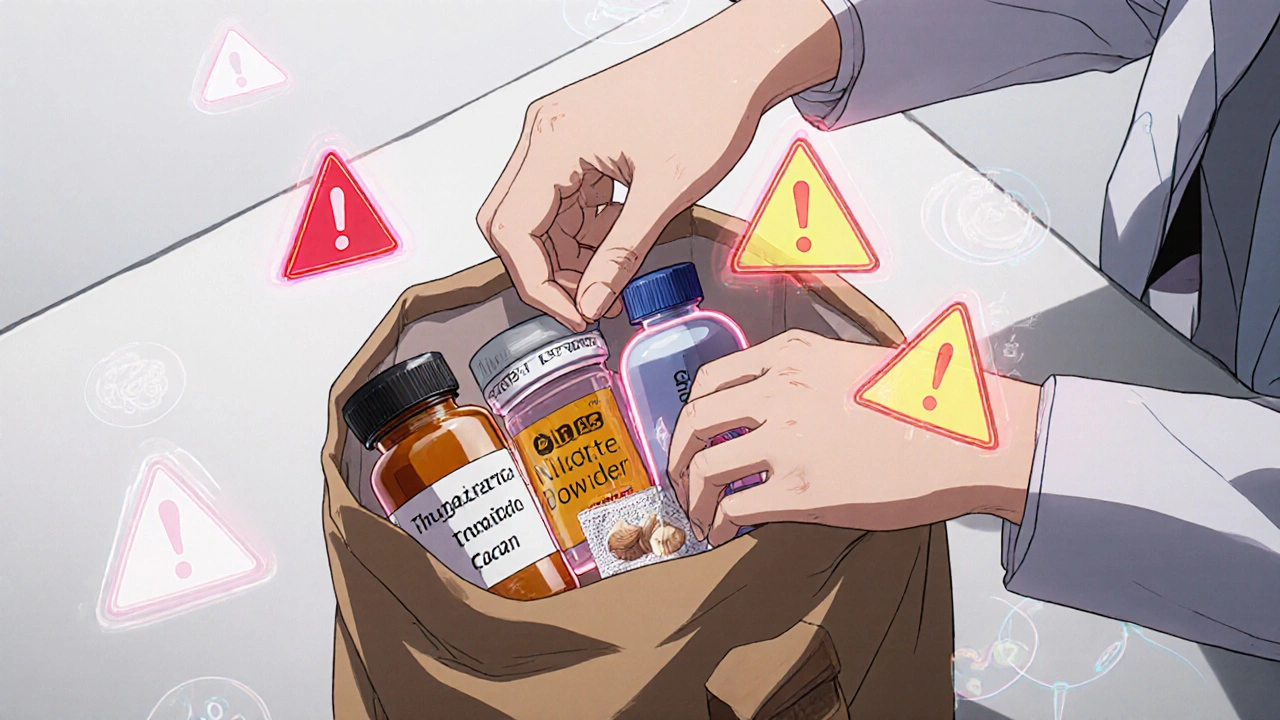
How Technology Helps-And Where It Falls Short
There’s tech out there that’s supposed to make this easier. Systems like Surescripts pull your pharmacy history from 98% of U.S. pharmacies. Electronic health records (EHRs) flag potential drug interactions. AI tools are starting to predict risks before they happen.
But here’s the catch: tech can’t replace you.
These systems miss cash-pay prescriptions. They don’t know you stopped taking a drug last month because it made you dizzy. They can’t tell if your “as needed” painkiller is now a daily habit. And when they do flag an interaction, clinicians often ignore the alert-because they get 100 of them a day, and 49% are false alarms.
That’s why the best systems still require human input. Your input.
What Your Doctor Needs to Know (Beyond the List)
It’s not just what you take. It’s how you take it.
Did you skip doses because the pills made you nauseous? Did you stop your blood pressure med because you thought it was working? Did you split a pill because it was too expensive? Did you use someone else’s leftover antibiotics?
These aren’t just “details.” They’re red flags. Doctors need to know if you’re not taking meds as prescribed. That’s often more dangerous than taking the wrong one.
Use simple language. Say: “I’ve been taking this twice a day instead of once because I felt worse when I took it less.” Or: “I ran out and didn’t refill because I couldn’t afford it.”
There’s no shame in being honest. Your doctor’s job isn’t to judge-it’s to keep you safe.
What to Do Before Every Appointment
Here’s a quick checklist you can use before any medical visit:
- Grab a brown bag and put in every medication, supplement, and topical product you’ve used in the last 30 days.
- Write down the purpose of each one: “For blood pressure,” “For sleep,” “For joint pain.”
- Note if you’ve missed doses, changed dosages, or stopped any.
- Include any new symptoms you’ve noticed since starting or stopping a medication.
- Bring your list and your bag-even if you think you’ve told your doctor before.
Do this every time. Even if you’re seeing a new doctor. Even if you’ve been on the same meds for years.

Why This Matters More Than You Think
Medication reconciliation isn’t just a hospital procedure. It’s a safety net. And it only works if you help weave it.
At Johns Hopkins, hospitals that made medication reconciliation a standard practice cut anticoagulant-related errors by 62%. At other clinics, using the brown bag method reduced admission errors by 35% in just six months.
But here’s the kicker: none of that happens if you don’t speak up.
Technology can’t save you if you don’t tell your doctor about the fish oil. An algorithm can’t warn you about the interaction between your cholesterol pill and your turmeric tea if it doesn’t know you’re taking it.
You are the only person who knows your full story. And that story matters more than any chart, any database, any AI tool.
What to Do If You’re Overwhelmed
If you’re on a lot of meds, or you’re caring for an elderly parent, this can feel impossible. Here’s how to make it easier:
- Use a free app like Medisafe or MyTherapy to track your meds. Sync it with your pharmacy if possible.
- Ask your pharmacist to print a current list every time you fill a prescription. Keep it in your wallet.
- Ask a family member or friend to help you pack the brown bag. Two sets of eyes catch more mistakes.
- Don’t wait for an emergency. Schedule a “medication review” with your doctor once a year. Treat it like a physical.
And if you’re ever unsure whether something counts? Bring it. Better to have too much than too little.
Final Thought: You’re the Key
Healthcare is complex. Systems are flawed. Technology helps-but it doesn’t replace you.
The safest medication decisions don’t happen in a doctor’s office. They happen when you walk in with a brown bag in hand, ready to tell the truth. No filters. No shame. No assumptions.
That’s how you stop a mistake before it starts. That’s how you take control. And that’s how you make sure your next prescription doesn’t become your next problem.

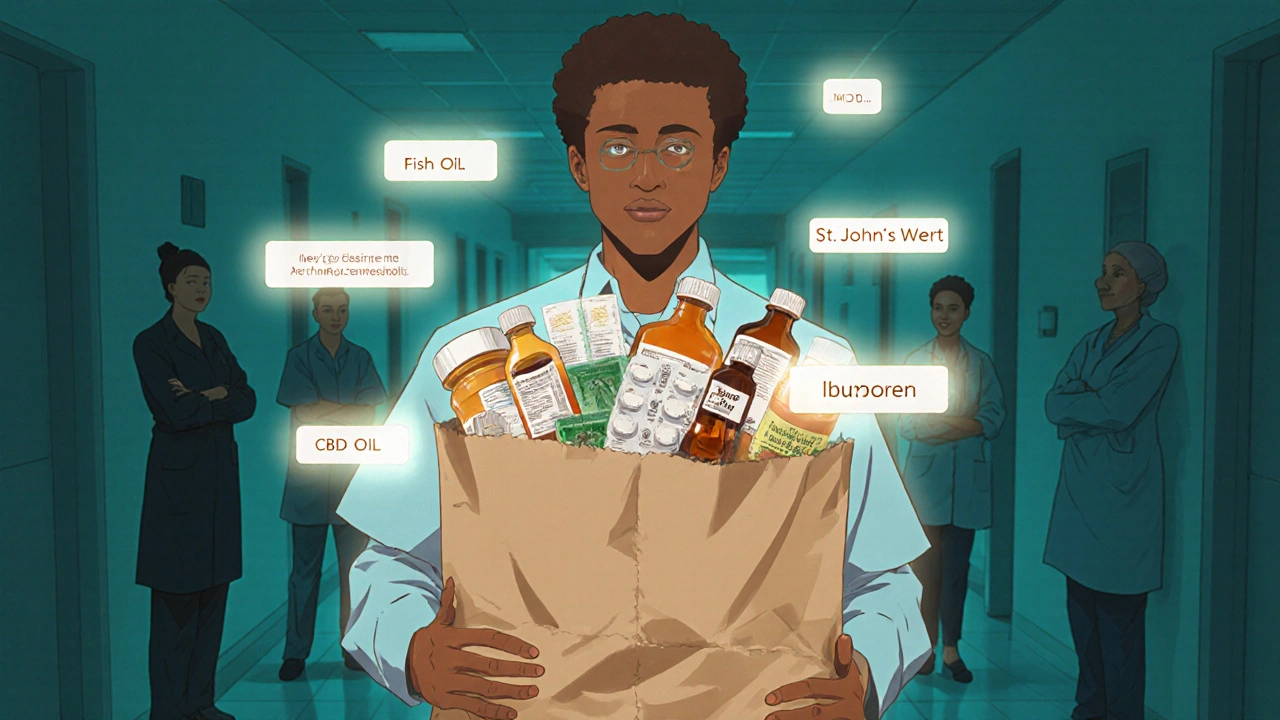
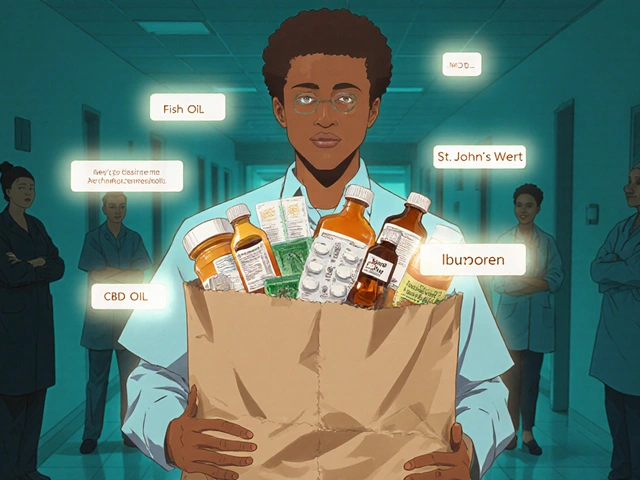
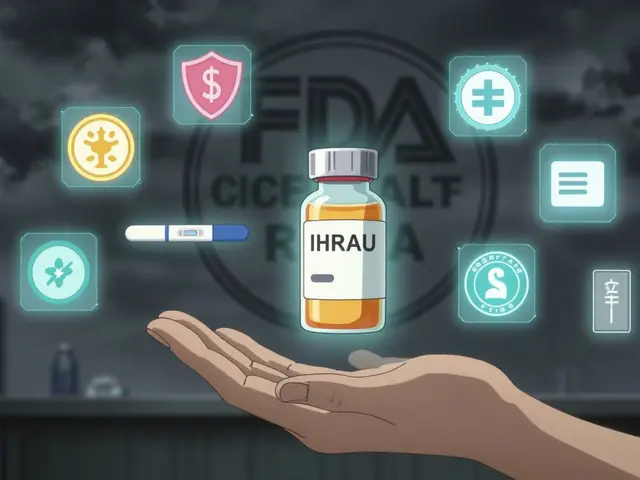
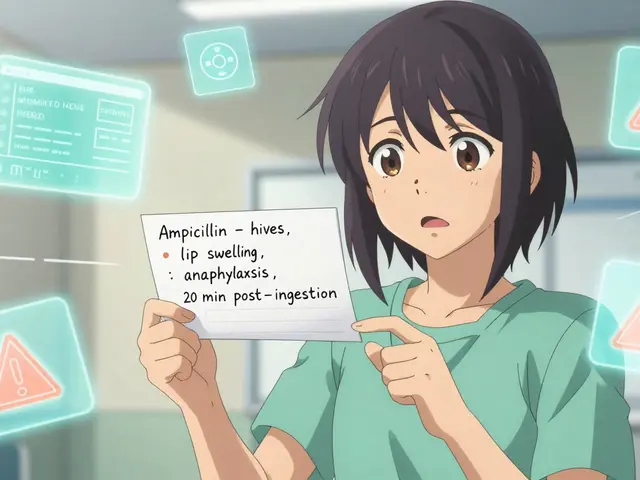
14 Comments
Write a comment